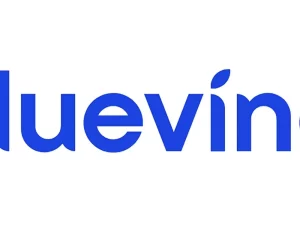Student loans play a crucial role by providing the necessary financial assistance that allows students to access higher education opportunities that would otherwise be out of reach. While student loans come with responsibilities, they offer numerous advantages that can positively impact students’ lives, future success, and overall financial well-being. This comprehensive article explores the advantages of student loans, highlighting their pivotal role in empowering education, creating opportunities, and shaping a prosperous future.
1. Access to Education:
The foremost advantage of student loans is their ability to provide students with access to higher education. Many individuals may not have the financial means to pay for tuition fees, textbooks, accommodation, and other educational expenses upfront. Student loans bridge this financial gap, enabling deserving students to enroll in colleges, universities, or vocational programs that align with their academic aspirations and career goals. By granting access to educational opportunities, student loans empower individuals to pursue their passions, develop their talents, and gain the knowledge and skills necessary for personal and professional growth.
2. Investment in Future:
Student loans are essentially an investment in one’s future. By taking out a student loan, students are making a deliberate decision to invest in themselves and their potential for long-term success. Higher education equips individuals with a wide range of knowledge, critical thinking abilities, and specialized skills that enhance employability and open doors to higher-paying job opportunities. By acquiring a quality education through student loans, individuals gain a competitive edge in the job market, thereby increasing their earning potential and setting themselves on a path to financial stability and prosperity.
3. Flexibility of Repayment:
Student loans often offer flexible repayment options, ensuring that borrowers can tailor their loan repayment plans to their unique financial circumstances. Federal student loans, in particular, provide various repayment plans based on income, such as Income-Driven Repayment (IDR) plans. These plans cap monthly loan payments at a percentage of the borrower’s discretionary income, making repayment more manageable, especially for individuals with lower incomes. The flexibility of repayment options allows borrowers to strike a balance between meeting their financial obligations and maintaining a reasonable standard of living.
4. Building Credit History:
Managing student loans responsibly can significantly contribute to building a positive credit history. Student loans are often the first form of credit that individuals acquire, and consistently making on-time payments demonstrates financial responsibility to future lenders. A good credit history is essential for various aspects of adult life, including securing favorable interest rates on future loans, renting an apartment, or obtaining a mortgage. Successfully repaying student loans can establish a solid credit foundation, opening doors to better financial opportunities in the future.
5. Tax Benefits:
Student loans offer certain tax benefits that can help borrowers reduce their overall tax liability. The interest paid on qualified student loans may be tax-deductible, allowing borrowers to lower their taxable income. This deduction, known as the student loan interest deduction, provides financial relief to borrowers, particularly during the early years of loan repayment. It is important for borrowers to consult with a tax professional or refer to the IRS guidelines to determine their eligibility and take full advantage of these tax benefits.
6. Postponement Options:
Student loans provide borrowers with postponement options, such as deferment or forbearance, in case of financial hardships or unforeseen circumstances. Deferment allows borrowers to temporarily suspend loan payments, typically due to enrollment in graduate school, unemployment, economic hardship, or military service. Forbearance allows borrowers to temporarily reduce or pause loan payments due to financial difficulties. These options provide crucial relief during challenging times, prevent defaulting on loans, and provide an opportunity for borrowers to regain their financial stability.
7. Financial Flexibility for Pursuing Passions:
Student loans offer financial flexibility for students to explore their passions and interests beyond academics. Some students may choose to engage in unpaid internships, study abroad programs, research opportunities, or extracurricular activities that enhance their personal and professional development. Student loans can cover not only tuition but also additional expenses related to these enriching experiences, allowing students to make the most of their college years and broaden their horizons.
8. Access to Scholarships and Grants:
In addition to loans, many educational institutions, private organizations, and government entities provide scholarships and grants to support students’ educational pursuits. While scholarships and grants do not need to be repaid, they often have specific eligibility criteria. Student loans can act as a supplement to scholarships and grants, helping bridge the financial gap and ensuring that students can pursue their education even if they don’t receive full funding through scholarships alone. The availability of student loans ensures that students have more comprehensive financial support options to pursue their academic goals.
9. Networking and Career Opportunities:
Attending college or university through student loans provides students with valuable opportunities for networking and building connections. Educational institutions often have robust alumni networks and career services that can assist students in finding internships, job opportunities, or mentorship programs. These connections can significantly impact career advancement, provide guidance in navigating professional landscapes, and help students establish a strong professional network that may benefit them throughout their lives.
10. Personal Growth and Development:
Beyond the academic and career advantages, student loans contribute to personal growth and development. Higher education provides a transformative experience that allows students to broaden their perspectives, explore new ideas, and engage in critical thinking. College life offers opportunities for personal exploration, self-discovery, and the development of important life skills such as time management, independence, and problem-solving abilities. Student loans make it possible for students to immerse themselves fully in the college experience, creating lasting memories and fostering personal growth that goes beyond the classroom.
Conclusion:
Student loans offer numerous advantages that empower individuals to access education, invest in their future, and create opportunities for long-term success. By bridging the financial gap and providing students with the means to pursue higher education, student loans serve as a catalyst for personal, professional, and financial growth. However, it is essential for borrowers to approach student loans responsibly, make informed decisions, and effectively manage their loan repayment obligations. By leveraging the advantages of student loans wisely, students can embark on a transformative educational journey, build a strong foundation for their future, and unlock a world of opportunities that will shape their lives for years to come.










